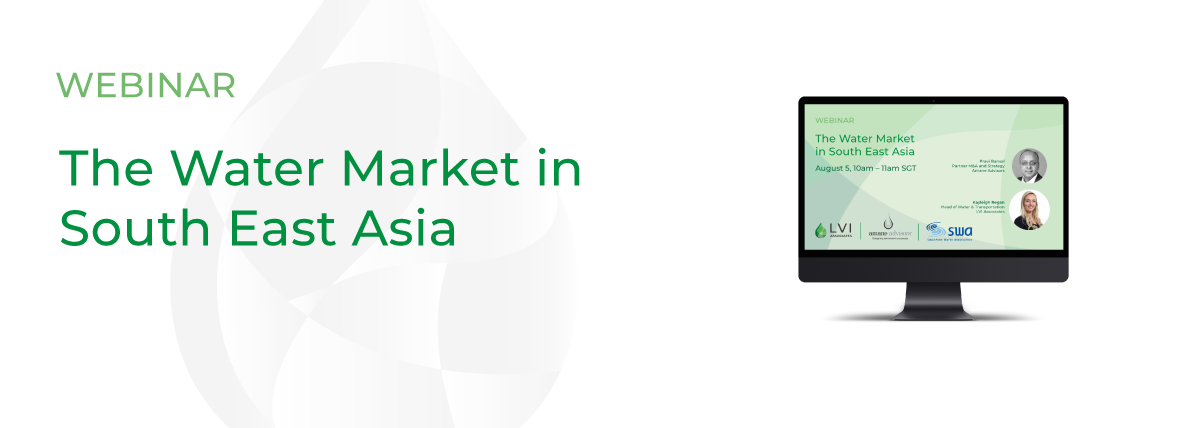On 5th August, Singapore Water Association (SWA) co-organised the latest webinar with LVI Associates, “The Water Market in South East Asia”. More than 100 participants attended the webinar.
During the course of the webinar, our highly engaged audience asked pressing interesting questions about developments affecting the water market.
Ms Kayleigh Regan, Head of Water & Transportation at LVI Associates and Mr Pravi Bansal, Managing Partner at Amane Advisors - South East Asia have shared their insights.
Government & Policies
Do you expect regulators deferring planned tariff adjustments during COVID-19?
As of today, we have already seen regulators allowing users in commercial and industrial segments to defer payments due to COVID in Southeast Asia. Elsewhere, in countries like Bahrain, the government has stepped in to cover the cost of water bills, protecting their utility from any potential revenue shortfall. Some 90 US cities and states have also suspended water shutoffs for unpaid bills in response to the economic impact of the crisis.
Do you foresee greater political will by governments in these Asian markets to enforce wastewater treatment regulations?
Yes, we are seeing greater enforcement in general, but it is not necessarily driven by COVID but rather wastewater pollution depleting water sources that will effectively affect water supply (e.g. in Vietnam) and consumers become more conscious of pollution of the natural environment (e.g. tourist areas, beaches).
What new incentives or guarantees should the government provide to the private sector to entice them to invest under the PPP framework?
We have seen incentives such as viability gap funding, revenue risk sharing and foreign exchange guarantee to increase private sector participation. Multilaterals are actively partnering governments and the private sector to strengthen the existing PPP framework.
Since water is crucial in public sanitation, while pharmaceutical and F&B projects are beefing up, do you foresee more public or private funding in public water infrastructures or municipal projects?
We are not yet seeing a significant impact between COVID-19 and increased spending in the municipal water sector, although some increase in demand is expected due to increased washing and cleaning for sanitation purposes. However, this increase is likely to be minimal and well within the capacity of existing water treatment and distribution systems. As for cleansers and sanitisers being used which end up in wastewater treatment systems, we also expect biological treatment systems to continue to function well.
As mentioned in the webinar, what we are seeing is more a delay in spending on municipal projects, but projects are expected to pick up once the crisis has been alleviated and governments can focus more attention on the water sector past the immediate healthcare focus.
To access the full webinar recording and download the full Questions & Answers - A Collection of the Best from the SWA Webinar.
Explore More
